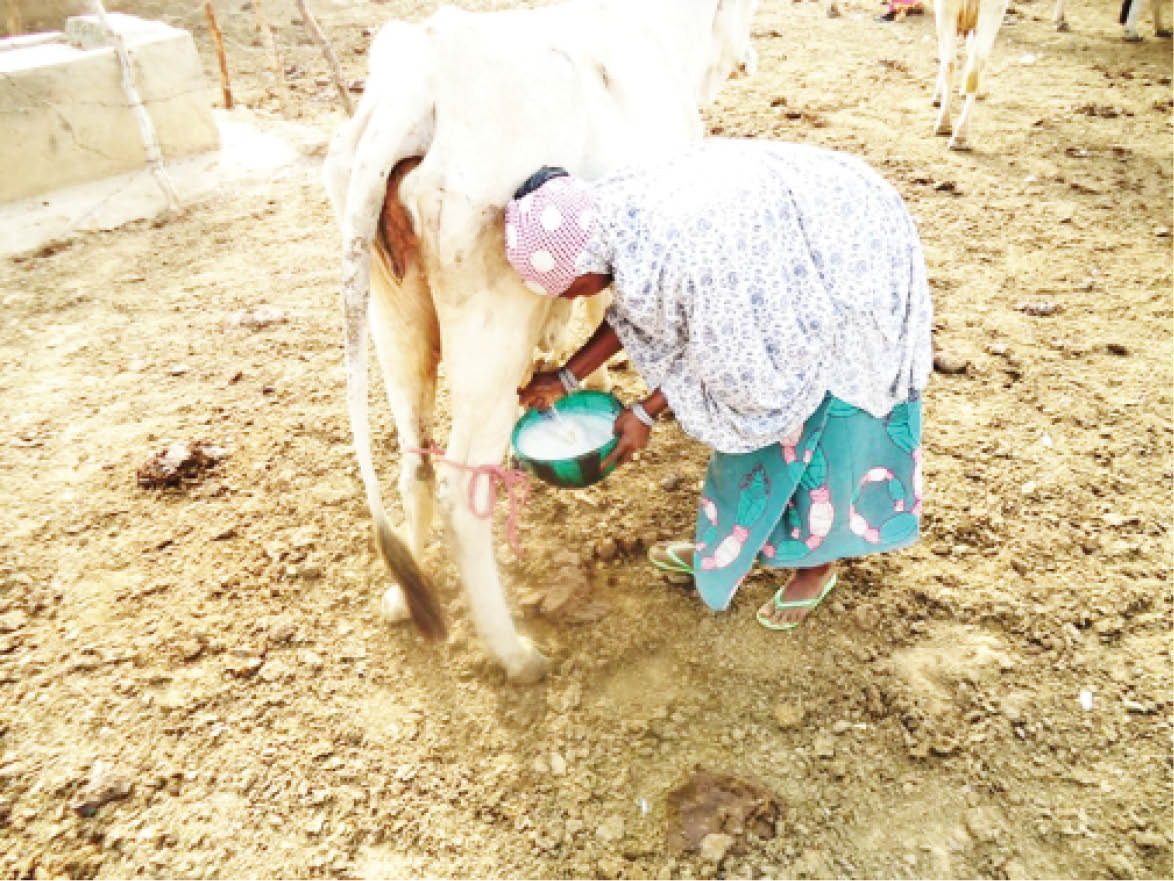ABU to partner Fulani on milk production
The National Animal Production Research Institute (NAPRI) of the Ahmadu Bello University (ABU), Zaria, in collaboration with the producers of Dano Milk, is set to partner with Fulani herders in Kubau Local Government Area of Kaduna State to enhance milk and animal production. The Executive Director of NAPRI, Prof. Abdullahi Mohammed, said to do this, […]

A woman milk a cow in Funtua, Katsina State
The National Animal Production Research Institute (NAPRI) of the Ahmadu Bello University (ABU), Zaria, in collaboration with the producers of Dano Milk, is set to partner with Fulani herders in Kubau Local Government Area of Kaduna State to enhance milk and animal production.
The Executive Director of NAPRI, Prof. Abdullahi Mohammed, said to do this, the institution would be using its farm machinery to assist the pastoralists with pasture, adding that the partnership would assist in addressing farmers/herders conflicts in Kaduna State.
While calling on government to assist the institute with research facilities, Prof. Mohammed said NAPRI was working to enhance local breeding of donkeys in order to save them from extinction.
He said the institute signed a Memorandum of Understanding (MOU) with Earthwheel Logistics Limited and other partners in February, 2020, on breeding of donkeys.
According to him, the gesture is aimed at improving the breeding of donkeys, which he said had the potential of adding value to government’s diversification agenda on livestock production.
He said the Federal Ministry of Agriculture and Rural Development declared donkeys as endangered species due to their haulage from the North to the South East for consumption and export.
He explained that, “Another reason why the number of donkeys is depleting at such alarming rate is due to Chinese involvement.
“They (Chinese) use the skins of the donkeys for medicine, and donkey skin is relatively expensive in China and this is why the practice has gone unabated despite of its ban by many state governments.”
Prof. Mohammed said the institute had established a donkey preservation and reproduction unit with more than 100 donkeys, and that it would soon expand the number of the donkeys.
